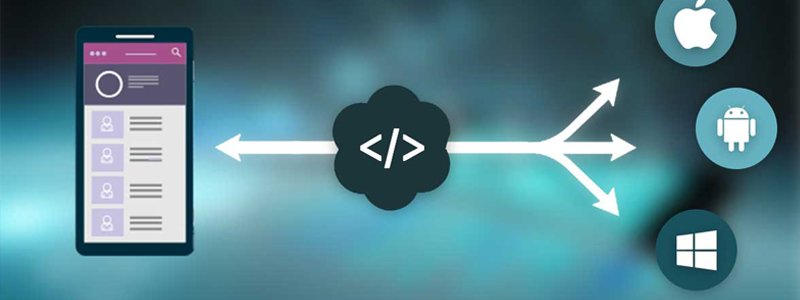
Hybrid mobile apps are like any other former apps you will find on your play store. These apps could be entertaining games app or social networking apps which are used to engage with your friends, take photos, track your health record, and more.
Like all websites, you can find on the internet, hybrid mobile apps also used or built with a mixture of web technologies like HTML, CSS, and JavaScript. The main difference is that Hybrid apps are deployed in a native container or application that uses a mobile platform’s WebView. WebView allows them to access device assistances such as the camera, contacts, accelerometer, and much more. In simpler words, Hybrid apps are “Cross-Platform Apps”, that can run on multiple devices with very minimal and singular efforts.
Hence, working in hybrid mobile app development makes life iOS developerseasier for as they are able to write the code once and build mobile applications that run on the main platforms with no extra effort. The application will run on Android and iOS and the code can be reused for progressive web applications and even desktop applications with some minor tweaks.
What Are The Advantages Of Hybrid Mobile App Development Method?
Here are a handful of not-to-miss benefits of Hybrid Apps for you –
- Reduced Development Costs: Building a hybrid mobile app is very reasonable and easy than any native or web mobile app. Nowadays, various development frameworks such as Xamarin and PhoneGap accelerate the development process for hybrid app developers and hence reduces submission time for the app to various app stores.
- Improved UI/UX: Hybrid apps are based on the idea of “information is just a tap away”. While, it displays data faster and adjusts to different device screen configurations immediately, it also resolves the issues of the fluctuating data streaming capabilities. As hybrid app is lightweight, so the hybrid app UI also allow to load the high-definition graphics and content rapidly.
- Ease of Integration: Like native apps, hybrid apps leverage the device’s internal programming system through an overlay which helps to enable seamless synchronization with other compatible apps. This reduces the integration challenges for developers. Hybrid apps work properly and can fit with your device’s native applications such as GPS, camera, messaging, etc. which gives a smooth user experience.
- Offline Support: A hybrid app is capable of providing offline app accessibility without performance glitches. The key is to store the device’s API to save offline data that helps to load the application quickly. Since a majority of users want to reduce their mobile data consumption and have an uninterrupted access to app’s data, though it partially stores information that the users can access at the time of poor or no connectivity.
- Simplified Maintenance: A hybrid app is designed in a manner that it bypasses versioning and makes app maintenance as simple as updating a web page, that too in real time. The flexibility features of hybrid app allows your user to be more flexible and meet the scalability needs of an enterprise.
These days, a mobile app is an imperative tool for every enterprise to penetrate the market quickly and stay competitive. A hybrid app makes this task much easier and faster. Giants like Zomato, Ola, AirBnB, and Instagram have already leveraged the advantages of hybrid mobile app development . If you too are looking to capitalize your business through a hybrid app of your own, connect with our experts now to discuss the requirements.

